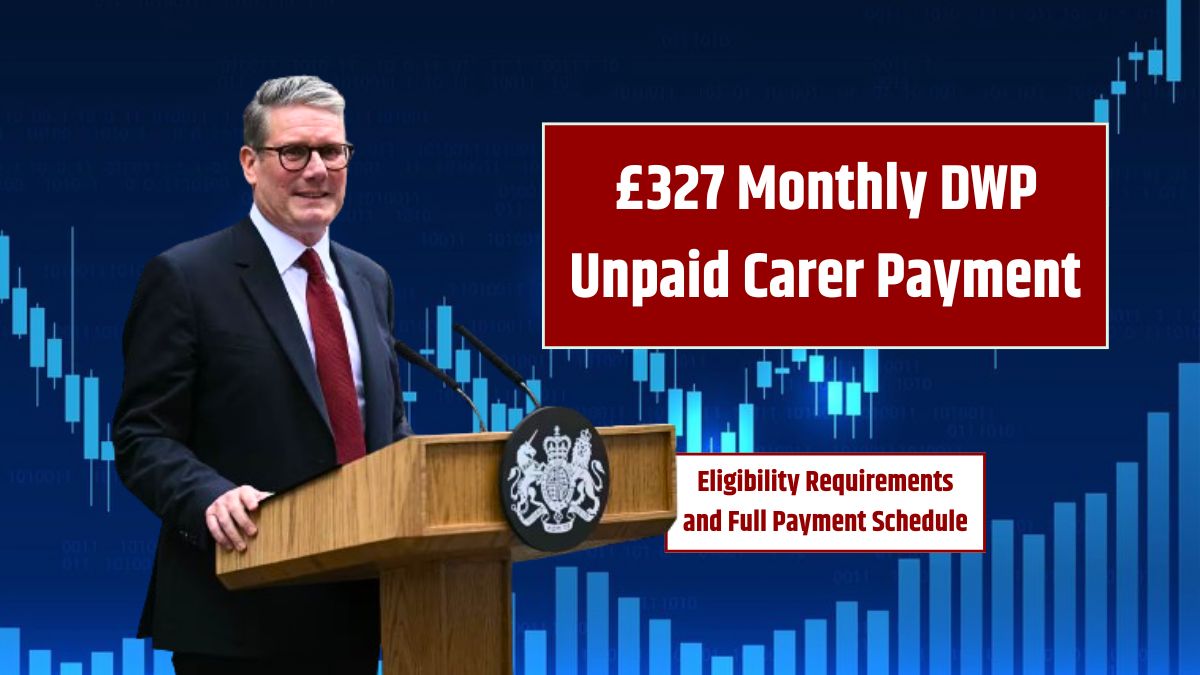If you’re receiving Attendance Allowance—or thinking about applying—there’s an urgent update you need to know. The Department for Work and Pensions (DWP) has reminded claimants that changes in personal circumstances can put your payments at risk. That means you could see your monthly amount of up to £441.60 reduced—or stopped entirely—if you don’t follow the rules.
This guide explains how to keep your payments safe, who qualifies, common mistakes to avoid, and what to do if you experience any changes in your life that might affect your benefit.
Overview
Attendance Allowance is a tax-free payment aimed at helping older adults who have physical or mental health needs. It’s not means-tested, so your income or savings won’t affect how much you receive. However, failing to report life changes could cost you dearly.
| Topic | Details |
|---|---|
| Benefit Name | Attendance Allowance |
| Administered By | Department for Work and Pensions (DWP) |
| Payment Amount | Up to £441.60 every four weeks |
| Target Group | Individuals over State Pension age with health or care needs |
| Risk Factors | Hospital stays, travel abroad, changes in care, or moving into care |
| Application Method | Phone or GOV.UK website |
| Appeals Available | Yes – you can challenge decisions |
| Extra Help | May increase other benefits like Pension Credit |
Payment
For 2025/26, Attendance Allowance is paid at two rates:
- Lower Rate: £73.90 per week — for those needing care during the day or at night
- Higher Rate: £110.40 per week — for those needing care day and night or terminally ill
That’s up to £441.60 every four weeks. A serious boost for anyone struggling with care costs or living on a pension.
Eligibility
To qualify, you must:
- Be over State Pension age
- Have a disability or illness that requires personal care or supervision
- Need that help for at least 6 months (unless terminally ill)
- Be present in Great Britain and meet residency rules
- Not be subject to immigration control
Even if you don’t have a formal carer, you can still claim as long as you need help.
Risk
Several common changes can stop or reduce your Attendance Allowance. Let’s take a look at what to watch for:
Hospital or Care Home Stays
Your payments will stop after 28 days in an NHS-funded hospital or care home. Report any admissions immediately to avoid overpayments and potential repayment demands.
Travel Abroad
You can keep your allowance during temporary trips abroad, but only for up to 13 weeks—or 26 if it’s for medical reasons. Extended absences may cancel your payments.
Change in Care Needs
If your condition gets better or worse, tell the DWP. This could increase or decrease your payment, depending on how your needs have changed.
Moving into a Care Home
If the care is council-funded, Attendance Allowance usually stops. If you’re self-funding, you might still be eligible—but again, report it to the DWP.
Apply
Here’s how to apply for Attendance Allowance and avoid errors:
Step 1
Call 0800 731 0122 or download the claim form from GOV.UK.
Step 2
Be honest. Explain how your condition affects daily activities like bathing, dressing, or getting around.
Step 3
GP letters, hospital notes, or statements from carers can strengthen your application.
Step 4
Mail it to the DWP. Keep a copy for your records.
Step 5
You might be contacted for more info or asked to attend a health assessment.
Example
Margaret, 78, receives the higher rate due to arthritis. She spent 10 weeks with her daughter in Spain and informed the DWP before leaving—no issues. But when she was later hospitalised for five weeks and didn’t notify them, she was asked to repay part of her benefit.
Mistakes
Avoid these common pitfalls:
- Forgetting to tell the DWP about hospital or care stays
- Assuming the benefit is only for people with paid carers
- Not reporting improvements or increased care needs
- Downplaying how your condition affects your daily life
Tips
Managing your claim well can make a big difference. Try these:
- Keep a diary of daily care needs
- Ask your GP to write a support letter
- Use Citizens Advice or Age UK for help filling out the form
- Set reminders for hospital stays or travel notifications
- Save every letter or email sent to or from the DWP
Stopped
If your benefit is reduced or stopped:
- Contact the DWP immediately to ask why
- Request a mandatory reconsideration if you disagree
- File an appeal with a tribunal if needed
- Ask local support groups or charities for help navigating the process
Checklist
Here are life changes you must report:
- Going into hospital or a care home
- Taking a long trip abroad
- Moving to a new address
- A change in how much help you need
- A new or removed carer
Attendance Allowance can be a financial lifeline, but only if you stay on top of the rules. Whether you’re applying for the first time or already receiving it, taking action now can protect your monthly payments—and give you peace of mind.
FAQs
What is Attendance Allowance for?
It helps with personal care costs for people over pension age.
How much is Attendance Allowance in 2025?
Up to £441.60 every four weeks depending on your needs.
Do I need a carer to claim?
No, you qualify based on your care needs, not who provides care.
Will it stop if I go into hospital?
Yes, it usually stops after 28 days in hospital or a care home.
Can I appeal if my claim is rejected?
Yes, you can request a reconsideration and file an appeal.




















